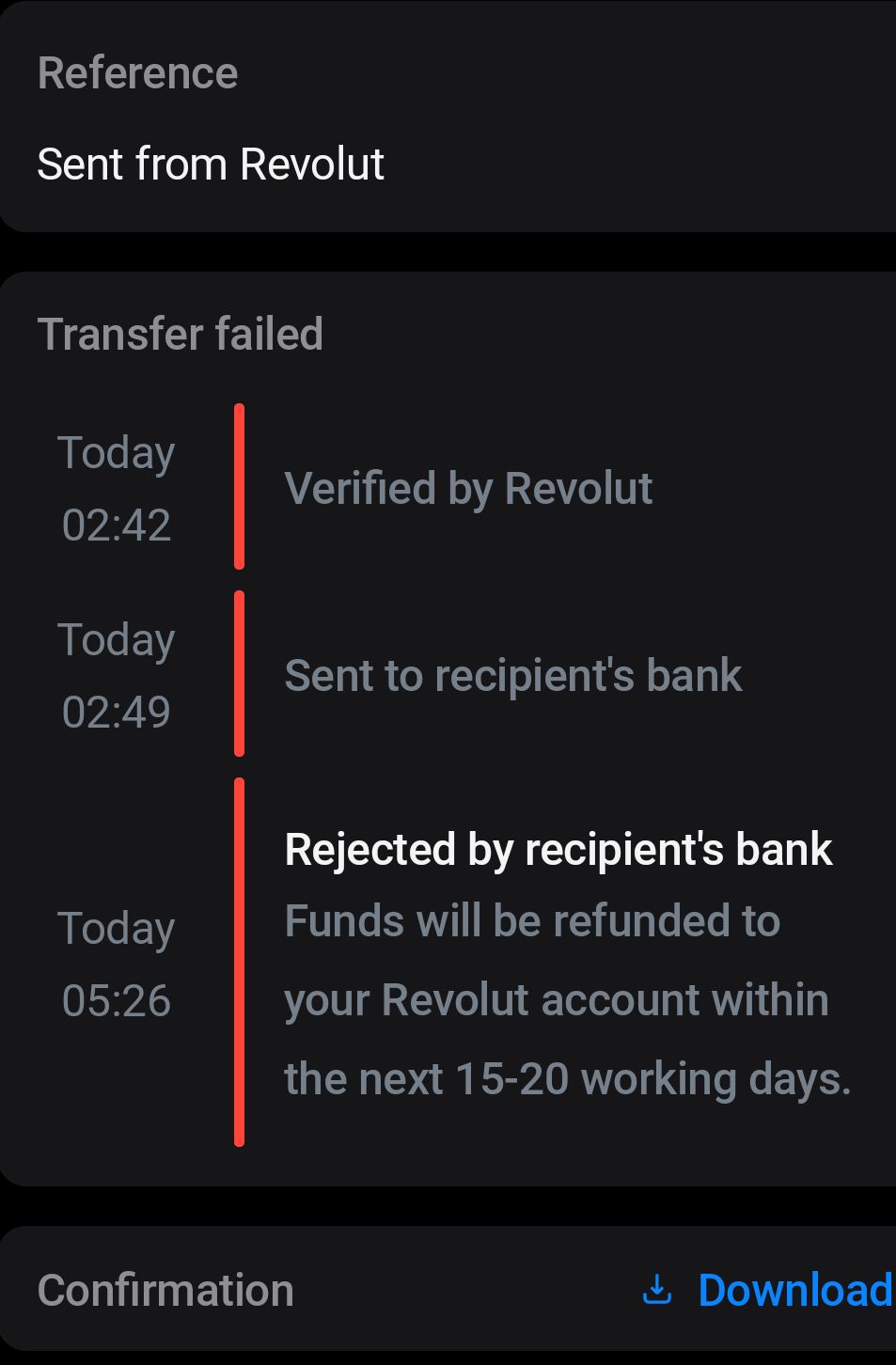I tried to make a SWIFT international money transfer from my Revolut bank account based in Europe to my US brokerage account, and my US brokerage account (Charles Schwab) rejected the transfer, according to Revolut. Why would a recipient bank reject an incoming transfer?
I understand they may reject outbound transfers, e.g. for security purposes, but I don't see any risk in receiving money.
Notes:
- The recipient financial institution (Charles Schwab) did accept a smaller transfer from Revolut. (using the same sender and recipient accounts: only The amount of the transfer and the time of the transfer changed).
- The recipient bank (Charles Schwab) did accept a larger transfer from a US financial institution (Fidelity).
- I prefer to make a large transfer instead of cutting it into small transfers to reduce the transaction fees.
- The transfer is made in USD: there is no currency exchange involved. My Revolut account in Europe contains USD.
Revolut screenshot stating that my US brokerage account (Charles Schwab) rejected the transfer:

